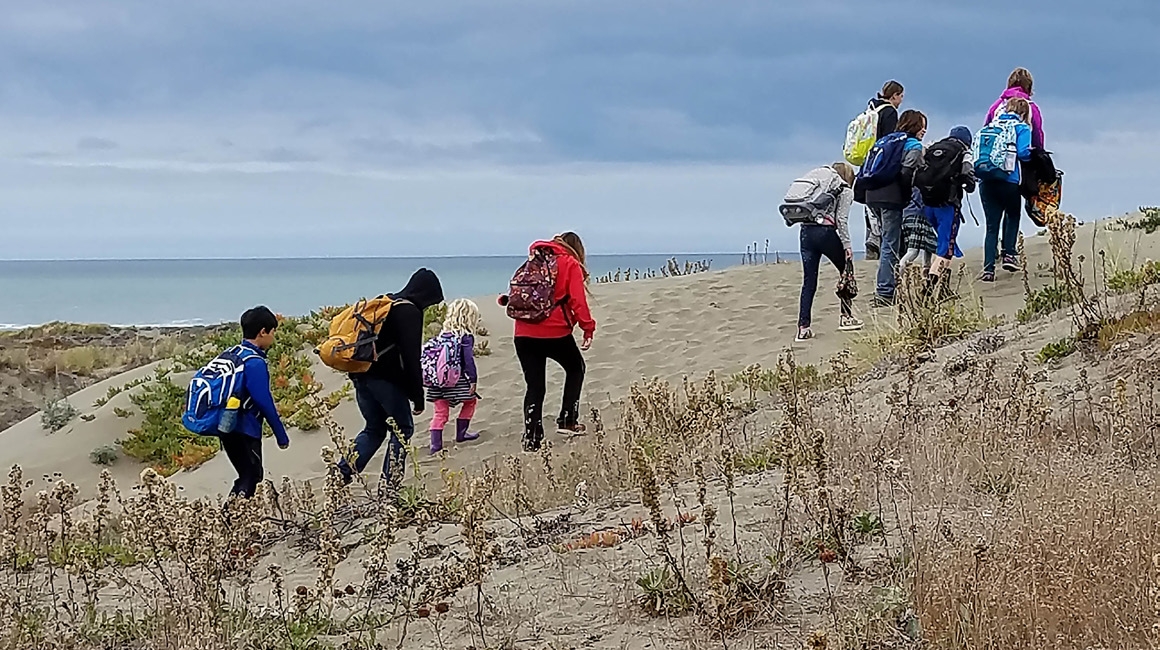Step 6: Improve Safety
IN A TSUNAMI ZONE -
Evacuate NOW!
Ground shaking is your tsunami warning. Every second counts - gather your family, your Grab and Go Bag, walk to high ground and stay there. See the Tsunami Maps for more information.
HOW DO I KNOW IF A FELT EARTHQUAKE IS BIG ENOUGH TO CAUSE A TSUNAMI?
Not sure? When it Doubt, Drill it Out. Every earthquake is an opportunity ot practice evacuation.
- GO BY FOOT Roads may be damaged by the earthquake or jammed with traffic.
- AVOID DOWNED POWER LINES or objects in contact with them.
- IF EVACUATION IS IMPOSSIBLE go to the top floor of a study building or climb a tree but only as a last resort.
- STAY AWAY FROM THE COAST until officials tell you it is safe to return. The hazard may last for hours or days.
How to tell if the shaking is long enough

NOT IN A TSUNAMI ZONE -
Stay where you are!
Most homes and businesses are not in a tsunami zone. Evacuating may put you at risk. Shelter in your home unless you suspect structural damage or other hazards like fire. Consult a professional if you are unsure of the safety of your home.
SITUATIONAL AWARENESS means being aware of your surroundings. Be cautious while you identify hazards. Wear study shores, work gloves, dust mask, and eye protection.
If you are trapped, protect mouth, nose and eyes. Use a whistle, cell phone or tap on walls so rescuers can locate you. Shouting will wear you out.
EXPECT AFTERSHOCKS Some may be large enough to cause additional damage.
HELP THE INJURED
- Treat yourself first then help those around you.
- Use direct pressure to control BLEEDING.
- Administer RESCUE BREATHING and/or CPR if needed.
- Do not move an injured person unless in a hazardous location.
- Cover people in SHOCK with blankets to keep them warm.
CHECK FOR HAZARDS
- Use fire extinguisher to extinguish small fires. Don't wait for the fire department. Evacuate buildings for larger fires.
- Turn the gas valve off only if you smell a gas odor anywhere in your home. Only your utility company can turn it back on safelt.
- Shut off power at the breaker box if you suspect electrical damage.
- UNPLUG APPLIANCES and electronic equipment. They could cause fires when powe is restored.
- Beware of items tumbling off shelves when you open cabinet doors.
- Isolate or cover chemical spills with absorbent material such as dirt or cat litter.
- Stay awat from BRICK CHIMNEYS and walls. Don't use fire place and wood burning stoves until inspected.